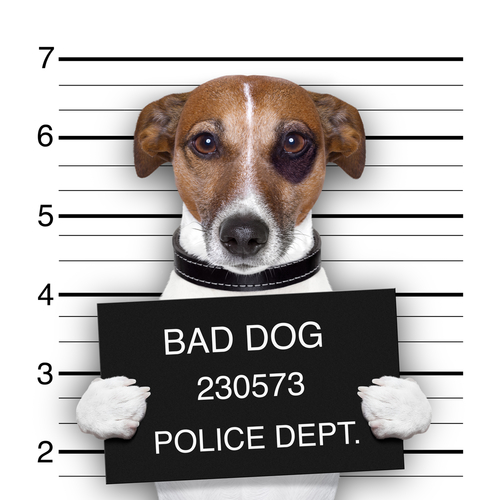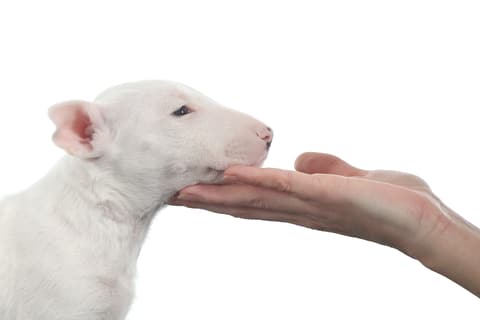
There are some important times in your puppy’s life that are helpful to understand. Here’s a brief run-down of the age your puppy will go through specific physical and psychological changes, and what you can do to help your puppy grow up to be the best dog possible.
Canine Socialization Period (3-7 weeks of age)
Even though this time frame occurs before most puppies are placed in new homes, it’s important to understand what happens at this age. This is an important time when puppies are learning the body language, vocalizations and behavior of “normal” dogs. Through playing with their littermates, puppies learn canine interaction. Through the discipline that the dam provides during weaning, they learn to accept discipline, and learn warning signals and appropriate responses to them. Puppies should spend this entire time frame with littermates and mom.
Socialization Period (7-12 weeks)
This is the ideal time for a puppy to move to his or her new “forever” home. It is important for the puppy to have a broad range of experiences during this period—and beyond. This includes meeting new people, going to new places, and being introduced to new things and activities— all in a positive, stress-free manner.
Fear Impact Period (around 8-11 weeks)
This is a short time frame when painful, traumatic or frightening experiences may have a more lasting impact on your pup than these same events occurring at another time. Avoid such things as elective surgery, and make any veterinary visits fun and rewarding by bringing toys and treats for the vet to give your puppy. In general, avoid stressful situations, but do continue to socialize and train your puppy.
Seniority Classification Period (12-16 weeks)
Also called “the age of cutting” this period represents the time your puppy begins cutting teeth and begins to cut the apron string. This is an important time for you to be managing your puppy’s behavior to avoid forming bad habits, and teaching and training her in a positive, nonpunitive way. Continue your puppy’s socialization throughout this period … and beyond
Two Teething Periods (3½ – 6 months and 7-10 months)
1) The first teething period extends from about 3½ to 6 months of age. During this time frame your puppy’s “milk” teeth will be replaced by her adult dentition. You may find the teeth that fall our, or they may be swallowed by your puppy. You may find small amounts of blood on a toy. This is all perfectly normal
2) The second teething period extends from about 7 to 10 (or more) months of age. At this time the dog’s teeth are setting in the jaw, and your dog will chew. Not might chew, must chew. It’s important to provide hard objects for your adolescent to exercise his jaw—Nyalbones, sterilized bones, raw marrow bones and the like. We’ll provide more information about safe objects we recommend.
Adolescence (~4 months to maturity)
Adolescence in dogs is not unlike adolescence in humans. It is marked by periodic selective deafness, occasional obnoxious or even challenging behavior. Continue patiently training your dog, and you will get through it (we promise!). If you have any issues that aren’t dealt with through training, please speak with us about a behavioral consultation. We are here to help you and your dog.
Fear of New (and some familiar) Situations
During adolescence, many dogs will go through periodic periods when they exhibit a fear response to new and sometimes to familiar situations. Click here for more information on adolescent fear periods.
Flight Instinct Period (sometime between 4 and 8 months)
This is the age when your puppy will truly test his wings, venturing off on his own and turning a deaf ear when you call. The Flight Instinct Period generally lasts anywhere from two weeks to a month. At this time, keep him on leash so you don’t put him in a position to run away from you, and learn that he can!
Maturity
There is no set time frame for when your dog will be mature. Maturity occurs earlier in small breeds (as early as one year in toy breeds) and later in larger breeds (as late as 3 or even 4 in giant breeds). Most dogs mature sometime between 18 and 30 months of age (1 ½ to 2 ½ years). At this time your dog should be well-trained, well-behaved and responsive.







